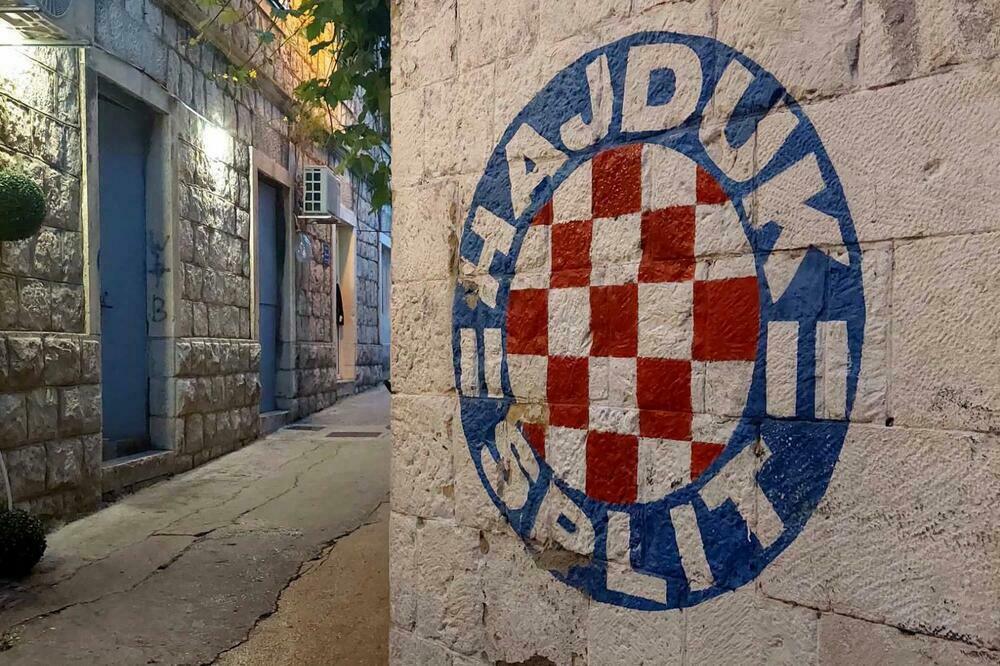It was an interesting frame, full of symbolism. The place of action is Split, and the event in question had considerable political weight. The political elite recently gathered there, as well as the majority of representatives of the leading party in the European Parliament, the European People's Party, in order to start preparing and developing a strategy ahead of the next European parliamentary elections, which will be held in June next year.
The focus of the televised image is the President of the European Commission, Ursula von der Leyen. She is surrounded by a large number of people, they press around her, and the one closest to her on the left is a local fashion designer who liked to give the esteemed guest a gift from the host. The gift is modest, but significant. A regular short-sleeved T-shirt with a black and white photo of the legendary Hajduk team from the 1970s printed on the front. But there is also a detail that attracts attention. Behind the honored guest is the Croatian Prime Minister, who is quite unsuccessfully trying to insert himself into the laughter-filled conversation between the ladies. I rewind the frame several times in order to determine with certainty what Andrej Plenković is saying on that occasion. No doubt, pointing his index finger at the T-shirt that von der Leyen is holding in his hands, he said the following: Most important, most important... these are glory days.
The days of past glory have been covered by the inglorious weed of today's tourism
So, those were the glory days in the 1970s. And the prime minister speaks well. He was definitely referring explicitly to the glorious days of the iconic Split and Croatian football club, to the decade when "Hajduk" won four Yugoslav championship titles and five Marshal Tito Cups in a row. It was "Hajduk" who wore a coat of arms with a five-pointed star on their jerseys, which, during the production of "Hajduk" monographs from the 1990s onwards, will increasingly mysteriously fade and disappear with each subsequent edition of those books.
And how, why and where did those glorious days of the legendary club take place, in what socio-historical and economic-political circumstances? Did the Croatian Prime Minister hint to his guest and the other guests from Europe, while they were walking along the Split waterfront in the warm September twilight, about such contexts? Did our dear guests learn something about Split's glorious 1970s from the perspective of the successful and well-known Split shipyard "Brodosplit" then, as opposed to today? Or maybe they got a chance to hear something about large and profitable Split companies from that time that employed thousands of workers, "Jugoplastici", "Dalmacijavina", "Konstruktor", "Lavčević"...?
Can and should the economic development of Split in the 1970s, which was never so strong before and not since, be linked to the sporting successes of not only Hajduk, but also Jugoplastika, one of the best basketball teams in Europe in the 1980s? them? And only the magnificent organization of the Mediterranean Games, the crown of that sports story about Split's glorious 1970s. But those days of past glory have been covered by the infamous weeds of today's tourism.
(portalnovosti.com)
Bonus video:




